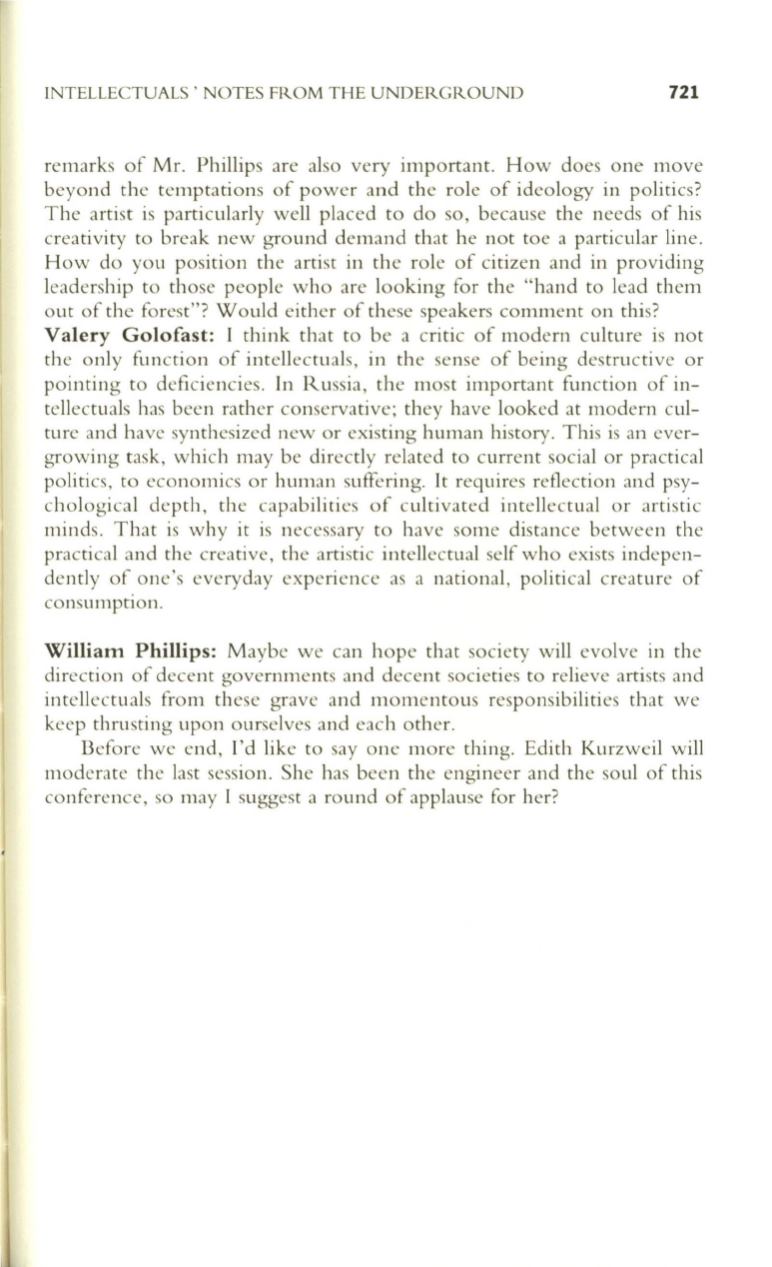
INTELLECTUALS' NOTES FROM T HE U NDERGROUND
721
remarks of Mr. Phillips are also ve ry impo rtant. How does o ne move
beyond the temptati o ns of power and th e role o f ideo logy in po liti cs?
T he artist is parti cularly well placed to do so, because the needs of his
creativity to break new ground demand that he not toe a parti cular lin e.
How do you positi o n the arti st in th e rol e of citizen and in providing
leadership to those people wh o are looking fo r the " hand to lead them
o ut o f th e fo rest"? Would either of these speakers comment on this?
Valery Golofast:
I think that to be a criti c of modern cultu re is no t
the o nl y fun cti o n o f intell ectuals, in the se nse o f being destru cti ve o r
po inting to defi ciencies. In Russia, the most impo rtant fun cti o n of in–
tell ectuals has been rather conse rva ti ve; th ey have looked at modern cul–
ture and have synthesized new or existing human history. This is an ever–
growin g tas k, whi ch may be direc tly related to current soc ial o r practi cal
politics,
to
economi cs o r human suffe ring. It requires refl ecti on and psy–
cho logica l d epth , th e capabiliti es of culti va ted intell ec tual o r arti sti c
minds. Th at is why it is necessa ry to have some di stance between the
practi cal and the crea ti ve, th e arti sti c intell ec tual self who exists indepen–
dently o f o ne's eve ryday experi ence as a national, politi cal crea ture of
consumpti on.
William Phillips:
Maybe we can hope that soc iety w ill evolve in the
directi on of decent gove rnments and decent societi es to reli eve artists and
intell ec tu als from th ese grave and m omento us respo nsibiliti es that we
keep thrusting upo n o ursel ves and each o ther.
Befo re we end , I'd like to say o ne mo re thing. Edith Kurzwe il will
moderate th e last session . She has been the enginee r and th e soul of thi s
conference, so may I suggest a round o f applause fo r her?


